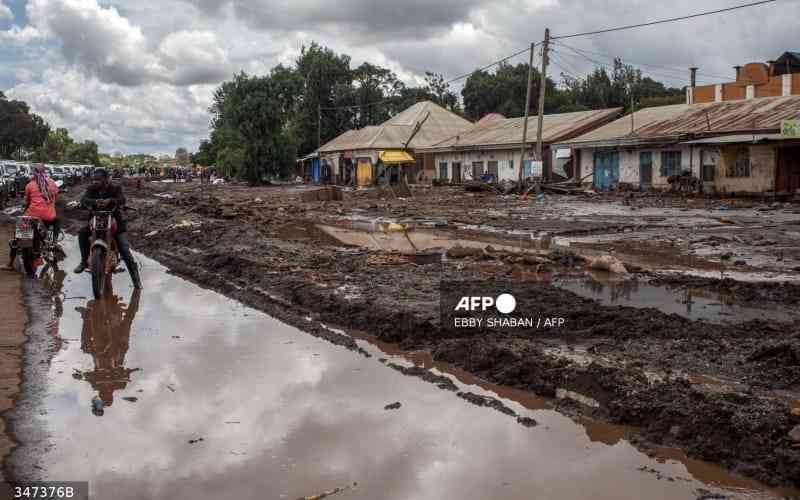By HAROLD AYODO
Fresh concerns have emerged over forced evictions of families, as adequate housing remains a nightmare to low-income families. The forced evictions and demolitions have recently taken new dimensions, being carried in direct contravention of court orders.
As it is, thousands of residents of the expansive Mathare slums and along railway lines are living in fear after expiry of notices for them to vacate. In March 2010, the Kenya Railways Corporation (KRC) issued a 30-day notice for more than 50,000 people living along railway lines to move out to give way for an upgrading project.
Although the evictions are yet to be carried out, the KRC is yet to formally withdraw the threat. Another 127,000 people allegedly encroaching along Nairobi River have been living in fear over the past three years as a result of plans to relocate them under the Nairobi Rivers Rehabilitation and Restoration Programme.
A report by the National Environment Management Authority (Nema) estimated that Sh1.8 billion would be needed for the relocation of families in Kibera, Mathare and Kawangware after 4,236 structures are demolished in an area covering 60 square kilometres. In Naivasha, residents of Narasha Village are still in shock after armed police officers descended on the 3,000-acre land, torching houses and destroying structures in a forceful eviction that left many in tears.
Eviction guidelines
Ironically, the forced evictions may not end soon even as the Constitution provides for the right to accessible and adequate housing and reasonable standards of sanitation. The concerns on increasing forced evictions came to the fore at a recent seminar dubbed, Public Interest, Legal Aid & Human Rights Committee on Right to Housing in Nairobi.
Amnesty International Country Director Justus Nyangaya says some evictions may be warranted but must be done humanely. “It is not disputed that some families may have encroached private or Government land, and converted them into informal settlements but sanity must prevail,” he says.
Kituo Cha Sheria Executive Director Gertrude Angote says violations in relation to housing are many. “Forced eviction, lack of security of tenure, inadequate housing, overcrowded and badly constructed homes in inappropriate places, are among the concerns,” Angote says.
She regrets that other forceful evictions are carried out in violation of court orders. “Residents of Mitumba slums near Wilson Airport in Nairobi were recently evicted despite a High Court order,” she says.
Progress
She adds that the right of access to housing as enshrined in the Constitution does not provide a right to demand the Government to provide access to a house, but is a pointer to the State to progressively realising start the right of access to housing.
Hakijamii Executive Director Odindo Opiata, adds that enforcement of housing rights as enshrined in the Constitution or following court orders would go a long way.
Opiata referred to a recent landmark ruling by the High Court, sitting in Embu, that if implemented, may restore hope to residents in urban areas.
According to the ruling, Lady Justice Hedwig Ong’udi ordered the State to reconstruct houses of 1,123 families in Garissa that it recently demolished unconstitutionally. She further ordered that the Government further pays Sh200,000 as damages, to the affected families. The orders were directed to the Minister for State, Provincial Administration and Internal Security, Minister for Lands, Attorney General and Garissa Municipality. The ministries and Local Government were the respondents in the suit.
Stay informed. Subscribe to our newsletter
“The judgment could set judicial precedence on the recent wave of demolition of homes and forced eviction,” Opiata says.
The ruling was issued after Garissa resident Ibrahim Sangor Osman and civil societies like the Economic and Social Rights Centre, Socio-Economic Rights Institute, Community Law Centre and Centre for Equality Rights in Accommodation moved to court over forced evictions, which left 1,123 families homeless in Bularik, Bula Medina, Sagarai, Naima, Bulla Nasal and Gesto within Garissa Municipality.
Lawyer Irene Ndegwa says that the right to housing is recognised and protected under international law.
“It has imposed obligations on states to protect, respect and fulfill this right. The right to housing is not an aspiration but must be fully realised for the benefit of all,” she says. Ndegwa’s sentiments were contained in a paper titled, International Overview on the Right to Housing in which she said economic and social rights as enshrined in the Constitution must be litigated in court.
Right to housing
“The right to adequate housing was first articulated in an international document in the 1948 Universal Declaration of Human Rights,” Ndegwa says, referring to Article 25 that says: “Everyone has the right to a standard of living adequate for the health and wellbeing of himself and of his family, including food, clothing and housing, medical care and necessary social services, and the right to security in the event of unemployment, sickness, disability, widowhood, old age or other lack of livelihood in circumstances beyond his control.”
Laban Osoro of Kituo Cha Sheria points out that investments in the housing sector since the 1966/67 Policy have been mini
 The Standard Group Plc is a
multi-media organization with investments in media platforms spanning newspaper
print operations, television, radio broadcasting, digital and online services. The
Standard Group is recognized as a leading multi-media house in Kenya with a key
influence in matters of national and international interest.
The Standard Group Plc is a
multi-media organization with investments in media platforms spanning newspaper
print operations, television, radio broadcasting, digital and online services. The
Standard Group is recognized as a leading multi-media house in Kenya with a key
influence in matters of national and international interest.
 The Standard Group Plc is a
multi-media organization with investments in media platforms spanning newspaper
print operations, television, radio broadcasting, digital and online services. The
Standard Group is recognized as a leading multi-media house in Kenya with a key
influence in matters of national and international interest.
The Standard Group Plc is a
multi-media organization with investments in media platforms spanning newspaper
print operations, television, radio broadcasting, digital and online services. The
Standard Group is recognized as a leading multi-media house in Kenya with a key
influence in matters of national and international interest.








